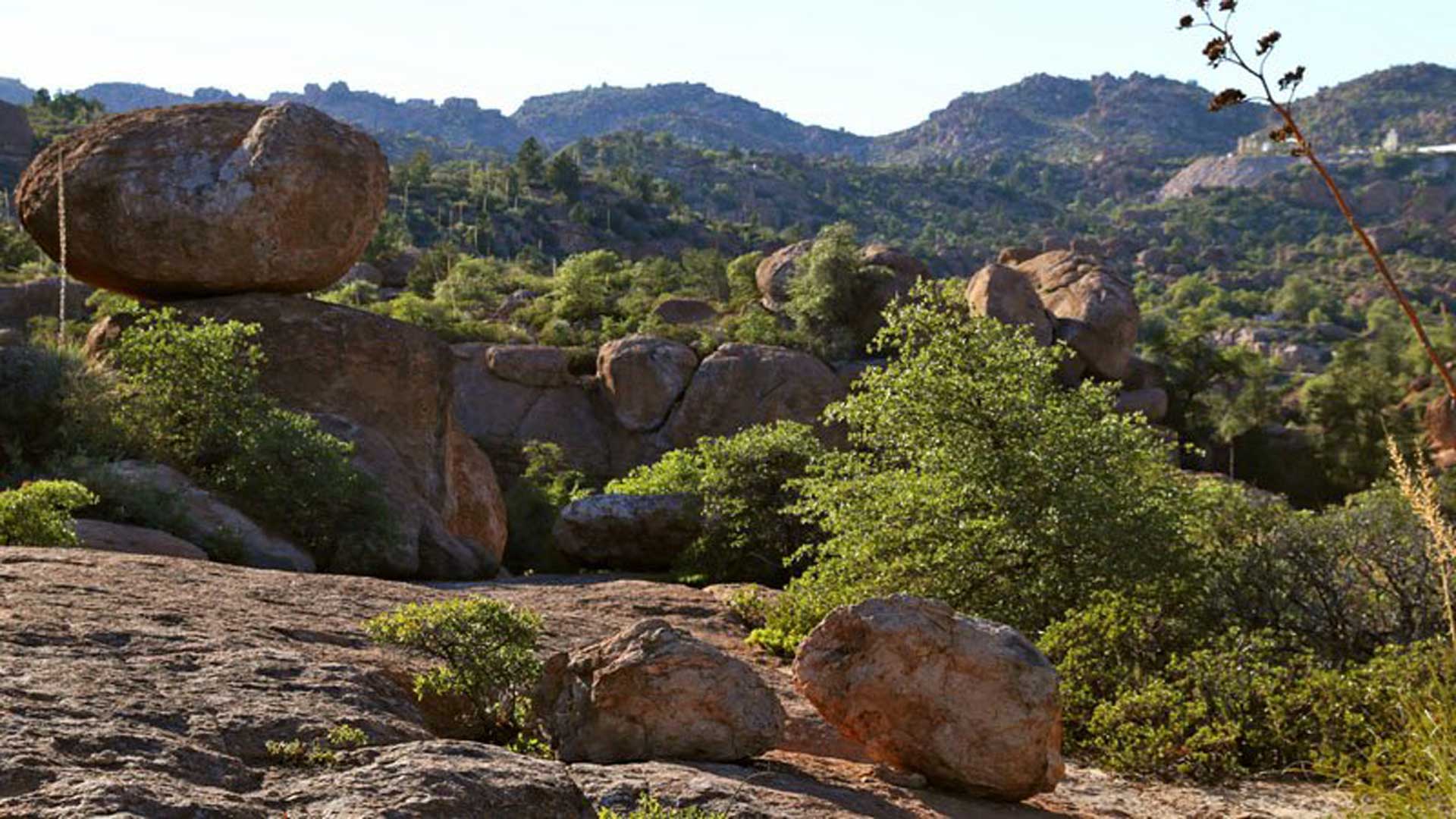 Oak Flat, near where a copper mine is proposed, is dotted with rugged boulders and desert vegetation.
Oak Flat, near where a copper mine is proposed, is dotted with rugged boulders and desert vegetation.
The U.S. Supreme Court has declined to hear a case brought by the nonprofit Apache Stronghold, allowing a controversial land swap to transfer the sacred Western Apache site of Oak Flat near Phoenix to a foreign-owned copper mining company.
In an order released Tuesday, the Court denied the group’s petition without comment, leaving in place a lower court’s starkly divided ruling.
Justice Neil Gorsuch, joined by Justice Clarence Thomas, issued a 17-page dissent sharply criticizing the Court’s refusal to review what he called a “grave mistake.”
“No more,” Gorsuch wrote. “Now, the government and a mining conglomerate want to turn Oak Flat into a massive hole in the ground.”
Since time immemorial, Western Apaches have worshipped at Oak Flat, conducting coming-of-age ceremonies, like the Sunrise Ceremony for young women. Tribal members believe the site is inhabited by Ga’an, or holy spirits, and serves as a direct spiritual link to their Creator.
Despite its religious importance, a late provision was quietly inserted into a 2014 defense spending bill that authorized the transfer of Oak Flat to Resolution Copper, a joint venture of two international mining giants, Rio Tinto and BHP. In exchange, the federal government would receive other parcels of land.
The proposed copper mine would eventually create a crater nearly two miles wide and up to 1,115 feet deep. According to a January 2021 environmental impact statement, the Department of Agriculture said the mining activities would “directly and permanently” damage Oak Flat.
Other mining avenues could be used, but underground techniques would reduce the amount of profitable ore that could be mined.
“The planned destruction of Oak Flat appears imminent,” the dissent read.
Apache Stronghold sued under the Religious Freedom Restoration Act (RFRA), arguing that the destruction of Oak Flat constituted a “substantial burden” on religious practices. The Ninth Circuit Court of Appeals rejected the claim in a deeply divided decision, holding that because the federal government’s actions did not directly coerce the Apaches or punish them for their beliefs, RFRA did not apply.
In his dissent, Gorsuch blasted that logic.
“Just imagine if the government sought to demolish a historic cathedral on so questionable a chain of legal reasoning,” he wrote. “I have no doubt that we would find that case worth our time.”
Gorsuch warned the court’s choice not to take up the case will leave “consequences that threaten to reverberate for generations.”
“They may live far from Washington, D. C., and their history and religious practices may be unfamiliar to many. But that should make no difference.”
The decision drew criticism from Native communities, who argue the ruling creates a dangerous precedent.
“We will never stop fighting—nothing will deter us from protecting Oak Flat from destruction,” Dr. Wendsler Nosie Sr., former chairman of the San Carlos Apache Tribe and leader of Apache Stronghold, said.
The Trump administration will continue to move forward with a Final Environmental Impact Statement that may come as soon as June 16, clearing the way for the land transfer to Resolution Copper shortly thereafter.
Once the transfer is complete, Oak Flat will no longer be subject to federal protections. The land will become private property, and Resolution Copper would have the right to exclude tribal members from conducting ceremonies or accessing parts of the area. During an appeals hearing, Resolution Copper emphasized its commitment to maintain public access to the Oak Flat Campground for 10 years, but did not address access beyond that.
With the legal path nearly exhausted, Apache Stronghold and its supporters now look to Congress as their last hope to protect Oak Flat.
“While this decision is a heavy blow, our struggle is far from over. We urge Congress to take decisive action to stop this injustice while we press forward in the courts,” Nosie said.

By submitting your comments, you hereby give AZPM the right to post your comments and potentially use them in any other form of media operated by this institution.